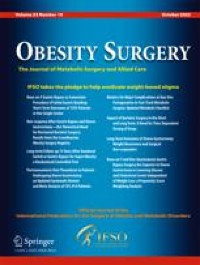|
Anapafseos 5 Agios Nikolaos 72100,Crete,Greece,00302841026182,00306932607174,alsfakia@gmail.com
Blog Archive
- ► 2022 (3010)
-
▼
2021
(9899)
-
▼
January
(1067)
-
▼
Jan 10
(100)
- Management and outcome of metastatic pheochromocyt...
- Biological insight into the extracellular vesicles...
- Assessment of non-traumatic vertebral fractures in...
- Lipocalin-2: a role in hepatic gluconeogenesis via...
- Testing the sleep hygiene recommendation against n...
- CBX8 acts as an independent RNA-binding protein to...
- StarD13 differentially regulates migration and inv...
- Impact of prolonged clamping of the portal vein du...
- What is the recommended procedure for recurrent re...
- Is open abdominal management useful in nontrauma e...
- Incidence of anastomotic stricture after hepaticoj...
- MRI pelvimetry-based evaluation of surgical diffic...
- A novel discriminant formula for the prompt diagno...
- Small mutations in Duchenne/Becker muscular dystrophy
- Primary dedifferentiated Liposarcoma of vagina
- Expression of IL4Rα and IL13Rα1 are associated wit...
- Onion Extract Encapsulated on Nano Chitosan: a Pro...
- Frequent Downregulation and Promoter Hypermethylat...
- Extended Total Mesorectal Excision (e-TME) for Loc...
- Gender Differences in Psychological Distress in Pa...
- Claudicatio des jungen Menschen
- Chronic subdural haematoma
- Papillary meningioma of the central nervous system...
- Postoperative stroke and neurological outcomes in ...
- Glucose-dependent diuresis in relation to improvem...
- Comparison of outcome after right colectomy with a...
- Preoperative CA19-9: a competitive predictor of re...
- Metabolic Effects of Endoscopic Duodenal Mucosal R...
- Laparoscopic Sleeve Gastrectomy under Awake Parave...
- The Hardship of Recovering a Patient from Liver Fa...
- Laparoscopic Single Anastomosis Gastric Bypass for...
- The Application of Enhanced Recovery After Surgery...
- Thromboembolism and Fluid Collections Years Follow...
- Effect of Fasting-Mimicking Diet or Continuous Ene...
- Surgical treatment for antiplatelet intracerebral ...
- Diffuse intrinsic pontine glioma
- Rescue permanent LVIS stenting with post-stenting ...
- A case of sigmoid volvulus in an unexpected demogr...
- Treat-to-Target Approach for the Management of Pat...
- Anastomotic leak risk in complete responders to ne...
- Obstructive Sleep Apnea in Obese Patients: a UK Po...
- Development of a Conceptual Model of Chronic Lymph...
- Treatment Outcomes in Type 2 Diabetes Mellitus
- Prognostic Nutritional Index Considering Resection...
- Activin a Receptor Type 2A Mutation Affects the Tu...
- SSAT PG/CME Committee Symposium Highlights: Periop...
- Patterns of Weight Loss Medication Utilization and...
- Giant Sliding Inguinoscrotal Hernia Causing Megaur...
- Simplified Thoracic Extra-Pleural (STEP) Approach ...
- Modified Wound Closure Technique in de Quervain’s ...
- Jugaad Trocar for a 5-mm Laparoscopic Cannula
- Adjusting to ostomy: The Good, the Bad and the Ugl...
- Dr. Edward E. Mason: Father of Bariatric Surgery
- The Roux-en-Y Lateral Duodenojejunostomy: an Elega...
- Inflammation Triggered by SARS-CoV-2 and ACE2 Augm...
- The Protective Effects of Perindopril Against Acut...
- LncRNA MEG3 Participates in Caerulein-Induced Infl...
- Effect of Exclusive Enteral Nutrition on Th17 Cell...
- Electroacupuncture Reduces Inflammation but Not Bo...
- GLP-1R Agonist Liraglutide Attenuates Inflammatory...
- Interleukin-1β Protection Against Experimental Sepsis
- S100A9 Upregulation Contributes to Learning and Me...
- Inhibition of JAK-STAT Signaling by Baricitinib Re...
- Surfactant Attenuates Air Embolism-Induced Lung In...
- Low Plasma Gelsolin Concentrations in Chronic Gran...
- FGF21 Enhances Therapeutic Efficacy and Reduces Si...
- Fever Induced by Zymosan A and Polyinosinic-Polycy...
- Sprouty2 Inhibits Migration and Invasion of Fibrob...
- Zingerone Mitigates Carrageenan-Induced Inflammati...
- The Combinatorial Effect of Acetate and Propionate...
- Comorbidities in psoriatic arthritis
- Dose Reduction of Tumor Necrosis Factor Inhibitor ...
- Antiphospholipid Antibodies in Inflammatory and Au...
- Dexamethasone can attenuate the pulmonary inflamma...
- Inflammatory M1-like macrophages polarized by NK-4...
- MicroRNA-520c-3p suppresses vascular endothelium d...
- Comorbidities in psoriatic arthritis
- Antiarrhythmic Treatment Duration and Tachycardia ...
- Surgical Timing and Outcomes of Unilateral Versus ...
- Systemic Artery Vasoconstrictor Therapy in Fontan ...
- On-Air Slips of the Tongue: A Psycholinguistic-Aco...
- Characteristics and outcomes of overlap myositis
- Lung surgery in children and their post-operative ...
- Optimal Rex shunt procedures as a treatment for pe...
- Usefulness of laparoscopic surgery and preoperativ...
- Serrated precancerous colorectal lesions
- Increased perioperative mortality for femoral neck...
- The safety of early versus late ileostomy reversal...
- Experimental evaluation of the fineness of needle ...
- In vitro antileishmanial potentialities of essenti...
- Attenuation of the Induction of TLRs 2 and 4 Mitig...
- Impact of elevated core temperature on cognition i...
- Hypoxic re-exposure retains hematological but not ...
- Comparative Efficacy of Oral Calcitonin-Gene–Relat...
- An Oral-mucosa-on-a-chip sensitively evaluates cel...
- Comparison of universal screening in major lynch-a...
- ACE-2-interacting Domain of SARS-CoV-2 (AIDS) Pept...
- Prevalence and predictors of small intestinal bact...
- The association of the progression of knee osteoar...
- Standardized framework to report on the role of sl...
-
▼
Jan 10
(100)
-
▼
January
(1067)
- ► 2020 (4138)
- ► 2019 (2429)
Αλέξανδρος Γ. Σφακιανάκης
Sunday, January 10, 2021
The Application of Enhanced Recovery After Surgery (ERAS) for Patients Undergoing Bariatric Surgery: a Systematic Review and Meta-analysis
Subscribe to:
Post Comments (Atom)



No comments:
Post a Comment